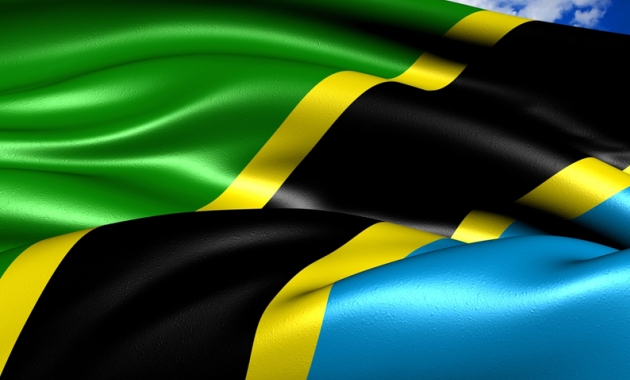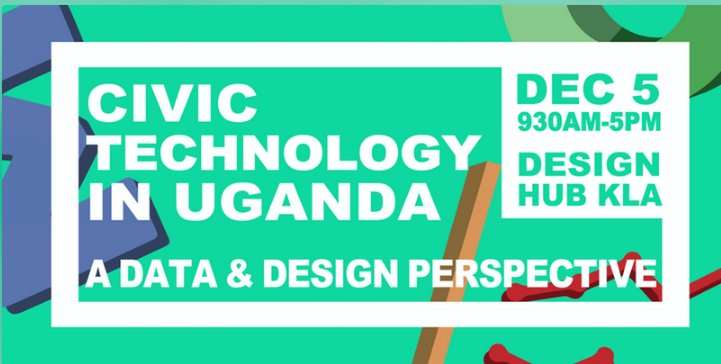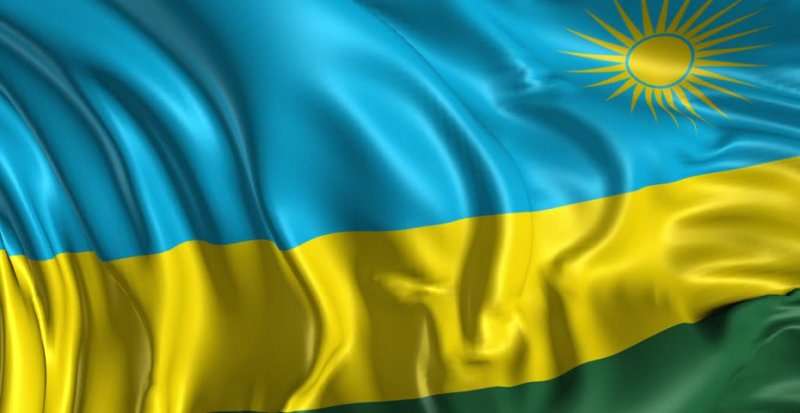By Loyce Kyogabirwe|
The United Nations (UN) has recognised data as a key factor for achieving and monitoring sustainable development. Indeed, the push for open data that contributes to government transparency and accountability and promotes citizens’ right to information and innovation through the Information and Communication Technology (ICT) sector continues to gain prominence globally, including in Africa.
In Uganda, the government is geared towards contributing to the emerging data revolution for sustainable development. Since 2016, the country has been party to the African Charter of Statistics and is also working to implement the UN Fundamental Principles of National Official Statistics as well as the Cape Town Action Plan. Uganda has also developed the National Development Plan and is party to regional development agendas such as Agenda 2063 and the East African Community’s Vision 2050.
In tandem with the above commitments and recognition of the need for quality data that responds to the demands of development agendas, the Uganda Bureau of Statistics (UBOS) together with other development agencies hosted the country’s first High Level National Data Forum from November 14 to 17, 2017 in Kampala to reflect on how to harness the data revolution for national development.
While presenting the National Standards Indicator Framework (NSIF) at the Forum, Imelda Musana, Deputy Director of Statistical Production and Development at UBOS underscored the importance of data and statistics for actualising the NSIF as an effective tool for measuring progress and performance, informing planning and resource allocation in all government Ministries, Departments and Agencies (MDAs).
Further, Bill Anderson, Data and Information Architect at Development Initiatives (DI) reiterated the need to build sustainable and inclusive data ecosystems. “To meet national development plans and the Sustainable Development Goals (SDGs), we need to build sustainable systems that are sustainably funded to tell the story of everyone in every village” he said.
During the discussion, it was recognised that due to decentralised statistical systems and fragmented data sets, official statistics did not reflect data generated by non-state data producers including the private sector, academia, civil society and the citizens. Participants therefore called for frameworks that can allow these sources of data, who are also motivated by the data revolution, to feed into the national statistics.
Coordination, collaboration and partnerships was also pointed out as essential for a functional and inclusive data ecosystem. According to Norah Madaya, Director of Statistical Coordination Services at UBOS, partnerships are inevitable in order to minimise duplication of efforts and increase efficiency and harmonisation of programmes. However, she noted existing challenges that hinder coordination and partnerships within the data ecosystem, such as lack of institutionalised statistical structures in government agencies, inadequate commitment to factors driving coordination such as harmonised ICT platforms and resistance to joint survey undertakings.
Meanwhile, usability as a driver for the national data ecosystem was also discussed, with widespread calls for data released by government to be in easily accessible digital formats. Currently, most public information/data released by government agencies is in PDF format and does not meet open data principles as prescribed in the Open Data Charter which calls for data to be released in a format that easily accessible, reusable and allows for manipulation, among others.
On the ICT front, Kenneth Bagarukayo, from the Ministry of ICT and National Guidance noted that Uganda’s readiness for open data is hindered by lack of common data standards as well as inadequate infrastructure. As such, in 2015, the government embarked on the process of developing the Open Data Policy that will help address these challenges. A draft of the policy has been developed with priority areas focusing on open data working groups, the development of an open data portal and high value data sets. According to Bagarukayo, policy consultations have been completed and the draft policy will be presented to cabinet for approval in December 2017.
Meanwhile, efforts are also underway to build Communities of Practice (CoP) on data among civil society, private sector and public-sector organisations. One such initiative is the East Africa Community of Practice for Data Revolution and SGDs which is working to enable actors meet frequently and deliberate on best practices, challenges and experiences of their engagements on data and community at the subnational level. Development Initiatives is leading efforts in Uganda towards agreeing on a general action plan for the country’s CoP and recently held a meeting with various actors including CIPESA to discuss gaps and needs that the CoP might address to increase collaboration across the East African region.
Ultimately, the National Data Forum was a ground-breaking event which will hopefully bring the data revolution to the forefront of national debates and support awareness of the evolving data demands for measuring national, regional and international development initiatives. Discussions over the three day event rallied stakeholders to come together and support more investment in data production, analysis and use, for evidence based planning.
Analysis of Tanzania’s Electronic and Postal Communications (Online Content) Regulations 2017
Policy Brief | The proposed Electronic and Postal Communications (Online Content) Regulations, 2017 join the catalogue of legislation related to online content in Tanzania that threaten citizens’ constitutionally guaranteed rights to freedom of opinion and expression and the right to seek, receive and impart information. The regulations were developed pursuant to section 103(1) of the Electronic and Postal Communications Act, 2010 (EPOCA), which empowers the Minister of Communications to make regulations on content related matters. Enacted in March 2010, the EPOCA aims to keep the communications sector abreast with developments in the electronic communications industry by providing for a comprehensive regulatory regime for electronic communications and postal communications service providers.
The regulations specify obligations of service providers and users of online platforms including social media, discussion forums, and online broadcasts (radio and television). They also confer powers upon the Tanzania Communications Regulatory Authority (TCRA) to regulate online content, including through registration of users and platforms, and taking action against non-compliance with the obligations, such as ordering the removal of “prohibited content.”
The regulations have some important provisions and set minimum standard requirements with regards to the protection of children online, fighting hate speech and extremism online, and promoting user responsibility and digital security practices. However, the regulations should to reviewed and amended to have clear, unambiguous definitions and wording, and quash the requirement for registration of bloggers and users of similar online platforms. It is also essential that not too much power is vested in TCRA with regards to content take-downs and that diversity in content availability online is promoted. The obligations set out should not turn content service providers and publishers into monitors, by handing them responsibility such as use of moderating tools to filter content, conducting content review before publication, and undertaking mechanisms to identify sources of content.
Moreover, there should be a clear appeal mechanism against orders to remove or block content, and such remedial measures should also be applicable once an order for blockage or removal has been issued but not yet been effected. Overall, the regulations should uphold citizens’ rights to privacy, access to information and free expression. Furthermore, TCRA, pursuant to EPOCA’s objectives of promoting a developed telecommunications sector in Tanzania, should ensure that the regulations foster internet access and affordability without placing undue requirements on service providers or making costs prohibitive, which would act as a barrier to market entry, including for public access facilities such as internet cafes.
Read CIPESA’s analysis of the implication on access to the internet, intermediary liability, user privacy, censorship, surveillance and freedom of expression of the proposed regulations in Tanzania.
Digital Security And Privacy Practices In Context For Human Rights Defenders
Workshop |
The Collaboration on International ICT Policy for Eastern and Southern Africa (CIPESA) in partnership with Outbox, a Kampala based tech hub are hosting a workshop aimed at building digital rights knowledge as well as the digital security and capacity of human rights defenders, media, vulnerable women organisations in Uganda.
Despite the importance of digital security and privacy for human rights defenders in carrying out their work, the development of effective digital security strategies still present a numerous challenge. Human rights defenders have to contend with an ever shifting landscape of technologies and threats, limited understanding of behavioral factors and the lack of customisation for a number of the tools, among others.
The one day workshop will be hosted at Outbox on the November 29, 2017 and is aimed at targeting human rights defenders, software developers, media and other civil society actors. Use this link to register.
Civic Technology in Uganda: A Data & Design Perspective
Workshop |
Are you a techie that’s looking to harness technology and design for the public good? Are you part of a government department or civil society organization interested in how data can improve public service delivery? Want to know what “service design” is all about? Then, this is the event for you!
We have partnered with Pollicy, a civic technology organisation and are excited to bring you the latest in civic technology in Uganda, with a focus on data and design. As issues of data ownership, digital security, censorship become more pertinent in our society, so does the need to appropriately harness the benefits of big data.
We will walk you through how data can be used to revolutionize how citizens and governments interact for mutual benefit. The agenda will include a panel discussion on the ownership of citizen data, ethics, privacy and digital security for civic technology organisations. There will also be lightening talks on the harnessing of big data to improve service delivery and a workshop on service design.
Service design is the activity of planning and organizing an organizations resources (people, props, and processes) in order to (1) directly improve the citizen’s experience, and (2) indirectly, the citizen’s experience. For this session, Design with Borders will introduce participants to the concept of service design and how to incorporate elements of service design into their work.
For more information, email [email protected] or visit our blog at medium.com/pollicy
Rapport alternatif sur la liberté d'expression en ligne au Rwanda
La “Collaboration on International ICT Policy for East and Southern Africa” (CIPESA) a soumis à la Commission Africaine des Droits de l’homme et des Peuples (CADHP) un rapport parallèle sur l’état de la liberté d’expression en ligne au Rwanda.
Le rapport décrit les mesures législatives et connexes prises par le Rwanda pour promouvoir et protéger la liberté d’expression en ligne et fournit à la Commission des informations impartiales sur l’état de la liberté d’Internet au Rwanda, ainsi que des recommandations d’amélioration.
L’article 62 de la Charte Africaine des Droits de l’Homme et des peuples (La Charte Africaine) exige que tous les Etats parties à la Charte présentent tous les deux ans des rapports sur les mesures prises pour réaliser les droits et libertés garantis par la Charte. Le Rwanda a soumis des rapports pour la période de 2009 à 2016 en date du 22 mars 2017. Ils ont été examinés par la commission cette semaine, avec des groupes de la société civile tels que CIPESA fournissant des rapports alternatifs et des questions pour informer la commission.
Dans son rapport, le gouvernement rwandais a déclaré que la liberté des médias et la liberté d’information sont reconnues et prévues par la loi, ajoutant que tout journaliste a droit à la liberté d’opinion et d’expression, y compris le droit de rechercher, recevoir, et diffuser des informations et des idées à travers tous les médias. Cependant, selon le rapport alternatif du CIPESA, diverses lois et pratiques étatiques continuent de contrevenir à ces libertés, limitant notamment leur jouissance en ligne. La surveillance et l’interception des communications, le blocage et le filtrage du contenu sont parmi les questions problématiques soulevées par le rapport parallèle du CIPESA.
Le gouvernement Rwandais a déclaré que la loi relative à l’accès à l’information est un point d’entrée pour améliorer la participation des journalistes aux affaires politiques et reconnaît l’importance d’une presse indépendante et professionnelle, ainsi que celle d’un accès facile à l’information comme composantes essentielles de la bonne gouvernance, du développement économique et politique durables. Il a ensuite précisé les lois nationales et les institutions statutaires qui garantissent le droit à l’expression et la liberté d’information.
Cependant, le rapport alternatif note que la loi n ° 24/2016 du 18/06/2016 sur les TIC, la Loi n ° 60/2013 réglementant l’interception des communications, le Code de procédure pénale n ° 30/2013 du 24/05/2013, la loi régissant l’enregistrement de la carte SIM de 2013, contiennent des dispositions qui portent atteinte à la liberté d’expression en ligne et aux droits à la vie privée et contreviennent à l’article 38 de la Constitution, aux normes internationales et aux meilleures pratiques en matière de liberté d’expression et d’accès à l’information.
En juin 2017, le taux de pénétration de l’Internet au Rwanda était estimé à 36,6% (3 724 678 connexions), les utilisateurs de Facebook étant estimés à 490 000, sur une population totale de 12 159 586 personnes. Cela représente une amélioration par rapport aux statistiques enregistrées par le “Rwanda Utilities Regulatory Authority” ( Agence de réglementation des services publics du Rwanda : RURA), qui indiquait un taux de pénétration du téléphone mobile de 79% et une pénétration d’Internet de 33%, en juin 2016.
Le rapport du CIPESA demande une révision complète de toutes les lois et politiques régissant l’interception et la vie privée afin de les mettre en conformité avec les garanties constitutionnelles, les normes internationales des droits de l’homme et les meilleures pratiques en matière de surveillance des communications et de respect de la vie privée.
Pour plus de détails, voir le rapport alternatif complet produit par le CIPESA, sur l’état de la liberté d’expression en ligne au Rwanda.





